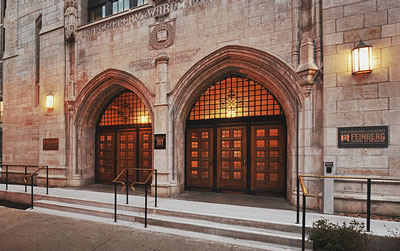Category: Disease Discoveries
-

Combination Therapy Reduces Toxic Aggregates in Parkinson’s Disease
A combination of drugs could fix the broken lysosomal enzyme pathway in Parkinson’s disease-afflicted neurons, according to a recent study.
-

Respiratory Virus Reprograms Airway Epithelial Cells
Respiratory syncytial virus infection during infancy results in metabolic reprogramming in epithelial cells lining the airway, according to a recent study.
-

How Herpes Checks Into the Nervous System for Life
A new Northwestern Medicine study has uncovered herpes’ sneaky strategy for infecting the nervous system, opening a path to long-needed vaccine development for the virus.
-

‘Dancing Molecules’ Successfully Repair Severe Spinal Cord Injuries
A new injectable therapy harnesses “dancing molecules” to reverse paralysis and repair tissue after severe spinal cord injuries, allowing animal subjects to regain the ability to walk.
-

Study Shows Epigenetic Modification is Central for Tumor Metastasis
Fatty acid uptake produces an epigenetic modification that is required for cancer metastasis, according to a study published in Nature.
-

New Insights into the Mechanism of ALS
The damaging effects of toxic proteins created in one inherited form of amyotrophic lateral sclerosis (ALS) are mediated by an enzyme called SPOP.
-

Gene Therapy Boosts Parkinson’s Disease Drug Benefits
A new Northwestern Medicine study published in Nature explains why dopamine neurons are lost in Parkinson’s disease, and demonstrated that a gene therapy targeting the brain’s substantia nigra can substantially boost the benefits of levodopa, an important medication for treating the disease.
-

How Cells Defend Against Influenza A Virus
Human cells use a protein named TBC1D5 to “trap and kill” influenza A viruses inside host cells, but the virus encodes its own protein to disable this defense.
-

Of Balding Mice and Men and Women
A newly discovered cause of balding in aging male mice could reveal a cause of hair loss in men and women as well, reports a study from Northwestern Medicine scientists.
-

Anti-Cancer Inhibitor Could Have Dual Effect
TG2, an enzyme known to help cancers spread more quickly, also plays a role in regulating T-cells — opening the door to dual inhibition, according to a recent Northwestern Medicine study.





